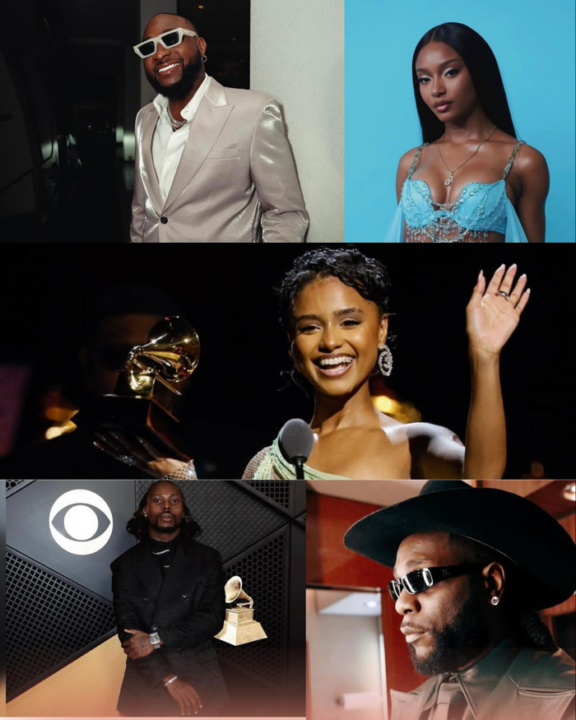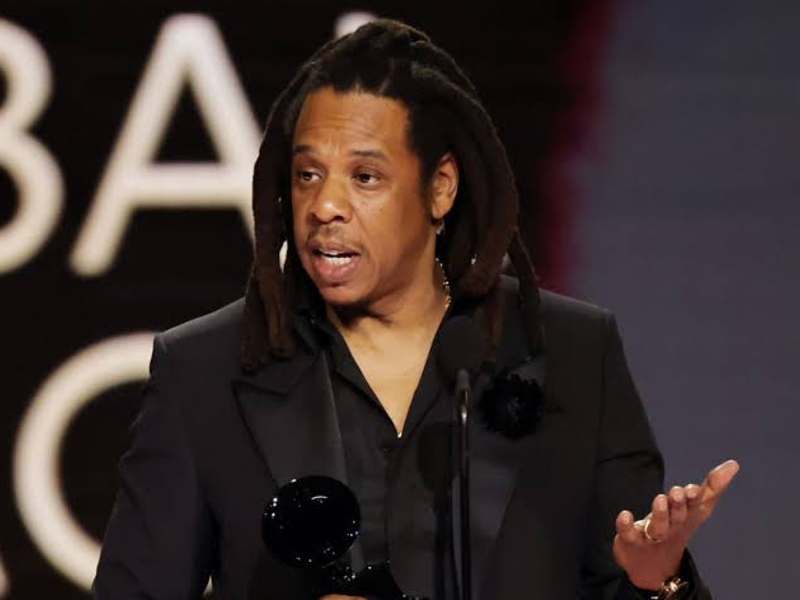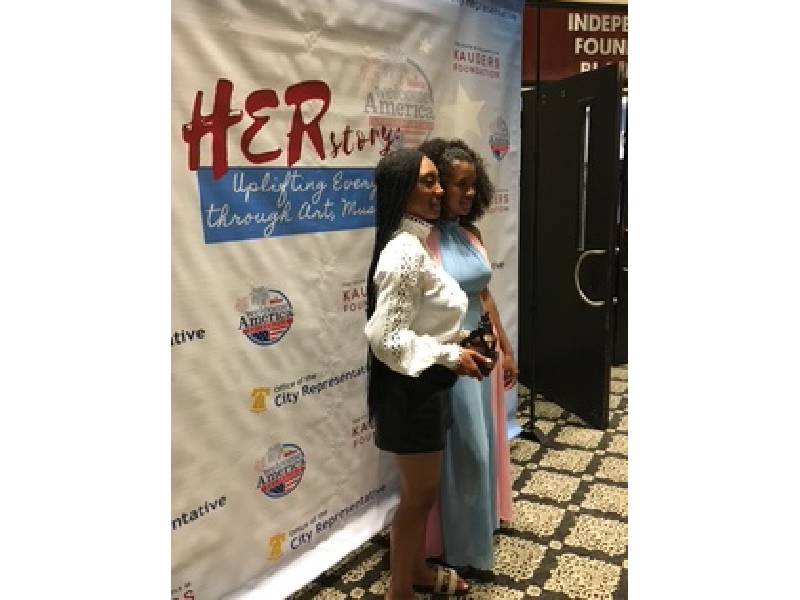The 66th Grammy Awards has left a mark, and the excitement surrounding African music’s global reach is palpable. With a dedicated “Best African Music Performance” category for the first time, the spotlight shines brightly on Afrobeats’ vibrant stars like Burna Boy, Ayra Starr, Davido, Tyla, and Asake. But amidst the celebratory buzz, a critical question lingers: are Black artists, even the most celebrated ones, still getting “robbed” at the Grammys?
This question isn’t new. In 2024, Jay-Z ignited a firestorm with his powerful speech at the ceremony, calling out the award show’s lack of cultural competency and its history of overlooking Black artists’ achievements. He pointed to Beyoncé’s numerous nominations without an Album of the Year win as a stark example, declaring, “Some of you are going to go home tonight feeling like you’ve been robbed.”
His words resonated deeply, particularly within the Afrobeats community. While the “Best African Music Performance” category is a welcome step, it raises questions about tokenism and true representation. Let’s examine the nominees, the historical context, and the ongoing struggle for recognition.

Afrobeats’ Triumphant Nominees:
This year’s contenders are a diverse and talented bunch:
- Burna Boy: A Grammy-winning powerhouse, Burna is nominated for four awards, including Best African Music Performance for his infectious “City Boys.” With its global streams exceeding 100 million, the song is a testament to his Afrobeats mastery.
- Ayra Starr: The youngest nominee, Ayra Starr’s “Rush” became a global sensation, topping charts and garnering over 300 million views on YouTube. Her bold lyrics and captivating style make her a rising star to watch.
- Davido: A pioneer of Afrobeats collaborations, Davido’s “Unavailable” featuring Musa Keys is nominated in the Best African Music Performance category. His album “Timeless” broke streaming records, solidifying his status as an industry titan.
- Asake: Spotify’s most streamed artist in Nigeria in 2023, Asake’s “Amapiano” with Olamide is a genre-bending banger that has amassed over 50 million streams. His infectious energy and innovative sound are undeniable.
- Tyla: Making history as the youngest South African artist to reach No. 67 on the Billboard Hot 100, Tyla’s captivating dance challenge for her hit “Water” propelled the song into a global sensation. The song boasts over 374 million Spotify streams and continues its ascent on various charts, solidifying her presence in the music scene. Her innovative dance and infectious sound offer a fresh perspective on Afrobeats, and her victory in the “Best African Music Performance” category marks a significant milestone for young artists in the genre.
These artists represent the dynamism and global reach of Afrobeats, but their nominations also raise questions about the selection process and the Grammys’ understanding of African music’s diverse landscape.
A Historical Lens: Jay-Z’s Speech and Beyond:
Jay-Z’s speech wasn’t just about a single year or a single artist. It was a powerful reminder of the long-standing tension between Black artists and the Grammys. From Kanye West’s infamous interruption to Kendrick Lamar’s overlooked “To Pimp a Butterfly,” the history is riddled with moments of frustration and disappointment.
This lack of recognition isn’t limited to the Grammys. Award shows across industries often fail to adequately represent the full spectrum of Black talent and achievement. This raises crucial questions: are judging panels truly equipped to understand and appreciate the nuances of diverse artistic expressions? Are award show categories themselves designed to be inclusive or perpetuate existing biases?
Moving Forward: Beyond the Awards:
While the Grammys hold significant cultural weight, it’s important to remember that artistic merit extends beyond awards. Black artists, like the talented nominees in the “Best African Music Performance” category, are creating groundbreaking music, pushing boundaries, and inspiring millions regardless of award recognition.
As Jay-Z emphasized, “We just gotta keep showing up.” Black artists must continue to create, collaborate, and push the boundaries of their craft. Their talent and dedication will pave the way for a future where recognition is not just a possibility, but a reality.
The conversation doesn’t end here. The Grammys’ evolving approach to Afrobeats is a step in the right direction, but true progress requires ongoing dialogue and action. Award shows must strive for genuine inclusivity and cultural competency in their selection processes and judging panels. Music fans and industry professionals alike can play a role by advocating for diverse representation and celebrating the achievements of Black artists, awards or not.
Afrobeats is at a pivotal moment, and its artists are demanding their rightful place on the global stage. While questions remain about the Grammys’ true commitment to inclusivity, the music itself continues to resonate, reminding us that Black artistry thrives and flourishes, defying limitations and inspiring generations to come. Let’s keep the conversation going, celebrate the triumphs, and work towards a future where cultural appreciation and recognition are truly inclusive.
Beyond the Nominees: Exploring Nuances and Representation:
While the nominees in the “Best African Music Performance” category represent established superstars and rising talents, it’s crucial to acknowledge the wider Afrobeats ecosystem. The genre encompasses a tapestry of subgenres, regional variations, and independent voices that may not find immediate recognition in award shows.
For example, Amapiano, with its South African roots and distinct house music influences, is gaining global traction. Artists like DJ Maphorisa, Kabza De Small, and Major League DJz are pushing boundaries and collaborating with Afrobeats stars like Burna Boy, Davido, and Wizkid. Yet, their contributions might not be readily captured within the “Best African Music Performance” category.
Similarly, female artists like Tiwa Savage, Yemi Alade, and Niniola have been paving the way for the current generation of stars. Their influence and artistry deserve recognition as well. A broader conversation about expanding award show categories or fostering more nuanced judging criteria is crucial to ensure diverse representation across the entire spectrum of Afrobeats.
Examining the Judging Process: Is Cultural Competency Enough?
The question of cultural competency goes beyond simply including diverse individuals on judging panels. It probes into understanding the historical context, regional variations, and artistic nuances of different genres like Afrobeats. Does the current Grammys selection process truly take these factors into account?
Some argue that simply having more “experts” on specific genres might not be enough. The issue might lie in the very structure of the award show, its inherent biases, and its voting system. Open discussions about these shortcomings and potential solutions are essential for creating a more equitable and inclusive award experience.
The Power of Fanbases and Grassroots Movements:
While award shows hold significant cultural sway, the power of dedicated fanbases and grassroots movements cannot be underestimated. Afrobeats fans worldwide are already showing their support through streaming, social media engagement, and attending concerts. Their unwavering passion and advocacy play a crucial role in amplifying the voices of their favorite artists and pushing for wider recognition.
Initiatives like #BlackLivesMatter and #SupportBlackArt have demonstrated the impact of collective action in demanding and achieving change. The Afrobeats community can harness this energy to promote their artists, challenge award show biases, and advocate for more accurate representation.
A Call for Dialogue and Action:
The 2024 Grammys and the “Best African Music Performance” category present an opportunity for dialogue and action. While celebrating the nominated artists, it’s important to acknowledge the ongoing concerns about inclusivity and cultural competency.
Music fans, artists, industry professionals, and award show organizers all have a role to play in pushing for progress. Open discussions, constructive criticism, and collaborative efforts are needed to build a future where cultural appreciation and recognition go beyond token gestures and truly honor the diverse tapestry of artistic expression.
Remember, the music doesn’t stop after the awards are handed out. Afrobeats, and Black artists across various genres, will continue to create, innovate, and inspire. Let’s celebrate their artistry, advocate for fair representation, and work towards a future where cultural boundaries are transcended and artistic merit is recognized regardless of race, genre, or origin.

Oluwadamilola is a multi-passionate Creative Brand Strategist, Social Media Expert, and certified Medical Aesthetician. With a strong background in digital storytelling and global brand growth, she blends creativity with strategy to amplify community-driven narratives. Beyond the newsroom, she is building a personal brand at the intersection of skincare, technology, and remote work; empowering undergraduates and young professionals to build digital skills and explore future-forward careers. Deeply curious and always evolving, she thrives on learning, innovation, and creating impact through intentional content. Check out www.tuyifedami.com for more





